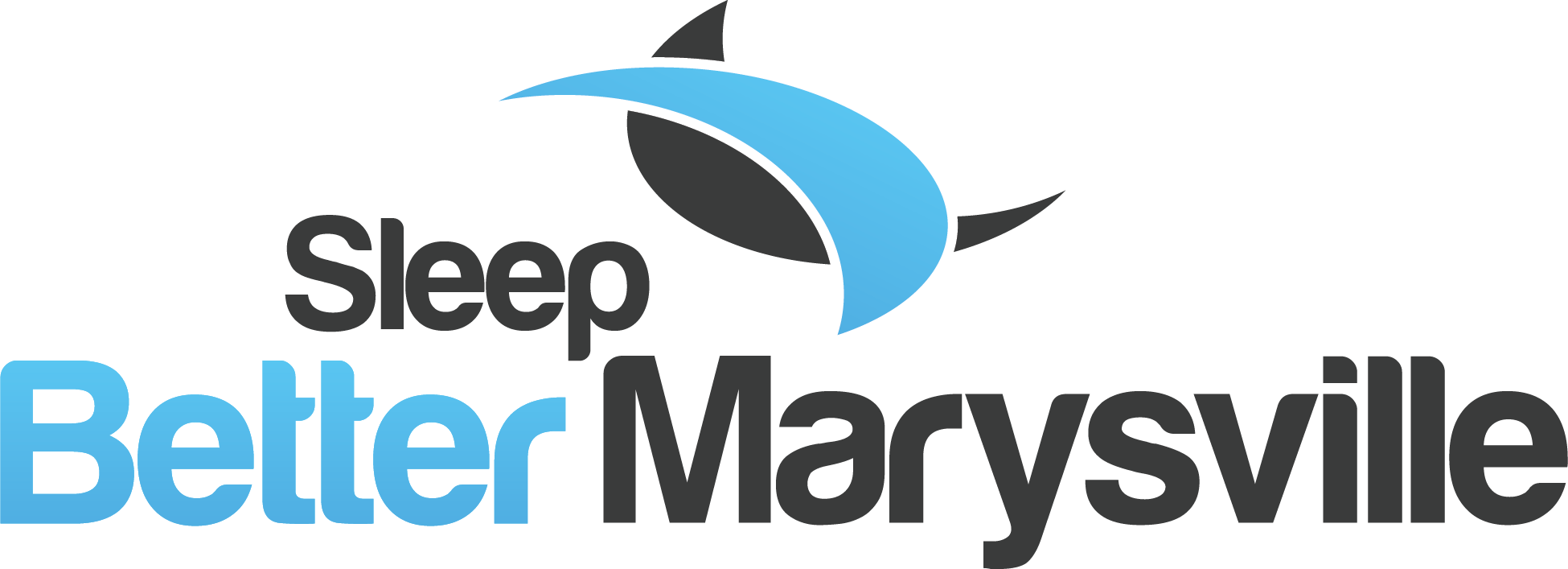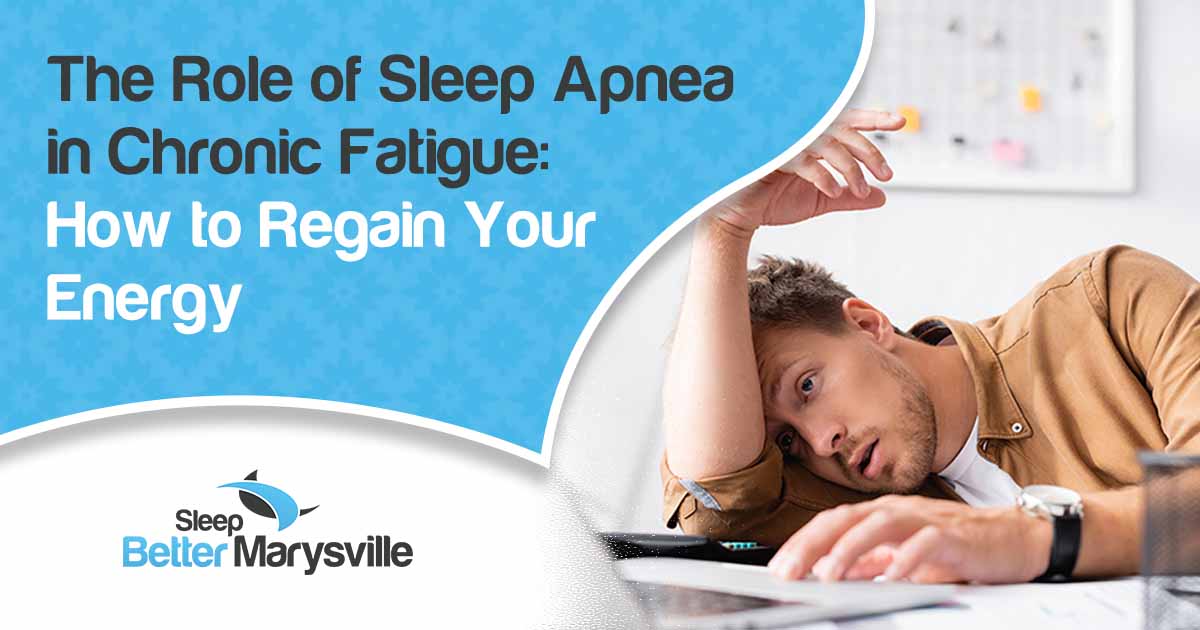Sleep apnea and chronic fatigue are two conditions that often go hand in hand, impacting the quality of life for those who suffer from them. Many individuals who experience chronic fatigue may not realize that untreated sleep apnea could be contributing to their ongoing exhaustion. Sleep apnea disrupts sleep, leading to daytime fatigue, poor concentration, and other health issues. This blog will explore how sleep apnea contributes to chronic fatigue, how to recognize the signs, and effective sleep apnea treatments that can help regain lost Energy.
Understanding Sleep apnea and Chronic Fatigue
What is Sleep apnea?
Sleep apnoea is a common sleep disorder where breathing repeatedly stops and starts during sleep. These pauses can last a few seconds to over a minute and happen multiple times an hour, disrupting sleep and reducing oxygen levels. The most common type, obstructive sleep apnoea (OSA), occurs when the airway is blocked due to relaxed throat muscles. A less common type, central sleep apnoea, happens when the brain doesn’t send the right signals to control breathing.
How Sleep Apnea Affects Overall Health
Untreated sleep apnea has serious consequences for overall health. The lack of quality sleep caused by frequent awakenings can contribute to high blood pressure, heart disease, stroke, and diabetes. Additionally, sleep apnea is linked to cognitive issues such as memory problems, irritability, and poor decision-making. For those also suffering from chronic fatigue, these health complications can worsen the exhaustion and make recovery more complex.
Defining Chronic Fatigue and Its Impact on Daily Life
Chronic fatigue is characterized by persistent, long-term tiredness that doesn’t improve with rest or sleep. People with chronic fatigue often experience difficulty performing daily tasks, low energy levels, and a feeling of exhaustion that doesn’t go away. This fatigue can be overwhelming, affecting work, social interactions, and overall quality of life. The condition is often linked to other health issues, and in many cases, it can be exacerbated by untreated sleep apnea. Both conditions share common symptoms, such as daytime sleepiness, difficulty concentrating, and a general feeling of low Energy. Recognizing the connection between sleep apnea and chronic fatigue is crucial for effective management.
How Sleep apnea Contributes to Chronic Fatigue
Disrupted Sleep Cycles and Oxygen Deprivation
Sleep apnea significantly disrupts regular sleep cycles, preventing individuals from reaching the more profound, restorative stages of sleep. During apnoeic episodes, when breathing stops, oxygen levels in the blood drop, prompting the body to wake up briefly to restore normal breathing. This disruption means that even though an individual may spend hours in bed, their sleep is fragmented and insufficient for proper rest. The body cannot recover fully without sufficient deep sleep, leading to persistent fatigue and daytime drowsiness. Over time, the cumulative effect of these interruptions can significantly contribute to chronic fatigue.
The Link Between Poor Sleep Quality and Daytime Exhaustion
One of the primary consequences of untreated sleep apnea is poor sleep quality. As a result of repeated awakenings during the night, people with sleep apnea often report feeling unrested, regardless of the number of hours they spend in bed. This lack of restorative sleep leads directly to daytime exhaustion. Fatigue from poor sleep quality can interfere with everyday activities, making even simple tasks more challenging. Over time, this exhaustion can become chronic as the body struggles to compensate for the lack of proper rest.
The Role of Sleep Apnea in Brain Fog and Cognitive Impairment
Chronic fatigue due to sleep apnea affects not only physical energy levels but also cognitive function. People with untreated sleep apnea often experience brain fog, difficulty concentrating, memory problems, and slow reaction times. These cognitive impairments can make it harder to perform at work or in social situations, further exacerbating feelings of frustration and fatigue. The disruption to regular sleep cycles prevents the brain from completing vital processes during deep sleep, such as memory consolidation and tissue repair. As a result, individuals may find it challenging to focus, think clearly, or remember things, making their fatigue feel even more pronounced.
Recognizing the Signs of Sleep apnea and Chronic Fatigue
Common Symptoms of Sleep apnea
Sleep apnoea often goes undetected, particularly in its early stages. However, specific symptoms are commonly experienced. These include loud snoring, gasping or choking during sleep, frequent nighttime awakenings, and feeling unrefreshed upon waking. Many individuals also report waking up with a dry mouth, sore throat, or headaches. Daytime drowsiness, irritability, and trouble concentrating are also prevalent, as disrupted sleep prevents the body from fully recovering.
Overlapping Signs of Sleep apnea and Chronic Fatigue Syndrome
The symptoms of sleep apnea closely resemble those of chronic fatigue syndrome (CFS), which can make it difficult to distinguish between the two conditions. Both sleep apnea and CFS share key symptoms, such as persistent tiredness, brain fog, and difficulty maintaining focus throughout the day. People with both conditions often struggle with feeling drained despite getting what seems like an adequate amount of sleep. This overlap in symptoms means that individuals suffering from chronic fatigue may not immediately consider sleep apnea a contributing factor to exhaustion.
When to Seek Professional Evaluation
If you are experiencing symptoms of chronic fatigue alongside any of the common signs of sleep apnea, it is essential to seek professional evaluation. A healthcare provider can help determine if sleep apnea contributes to the fatigue or if another underlying condition may be at play. A sleep study, or polysomnography, is the most effective diagnosis of sleep apnea. If sleep apnea is found to be present, treatment can begin, potentially alleviating the fatigue associated with the disorder. It’s essential not to overlook the connection between sleep apnea and chronic fatigue, as early diagnosis and treatment can significantly improve quality of life.
Effective Treatment Options for Sleep apnea and Chronic Fatigue
CPAP Therapy and Other Medical Interventions
The most common and effective treatment for sleep apnea is Continuous Positive Airway Pressure (CPAP) therapy. This treatment involves wearing a mask over the nose or mouth during sleep, which delivers a constant flow of air to keep the airway open. By preventing breathing interruptions, CPAP allows for uninterrupted sleep and improves oxygen levels in the blood. This can enhance sleep quality, increase energy levels, and reduce daytime fatigue.
Alternative treatments are available for those who cannot tolerate CPAP therapy. These may include oral appliances that reposition the jaw to keep the airway open or, in more severe cases, surgery to correct structural issues contributing to sleep apnea. It’s important to work with a healthcare provider to determine the most appropriate treatment for individual needs.
Lifestyle Changes to Improve Sleep Quality and Reduce Fatigue
In addition to medical treatments, lifestyle changes can help improve sleep quality and reduce fatigue. Establishing a regular sleep schedule, where individuals go to bed and wake up simultaneously daily, can help regulate the body’s internal clock and promote more consistent sleep patterns. Maintaining a healthy weight is also crucial, as excess weight can worsen sleep apnea.
Exercise and physical activity, especially aerobic exercises, can help improve overall sleep quality and combat fatigue. Regular physical activity increases oxygen levels and can improve sleep by reducing stress and anxiety. Additionally, avoiding stimulants like caffeine, alcohol, and nicotine before bedtime can help promote a more restful night’s sleep.
Reducing Stress and Improving Sleep Hygiene
Stress management is another key factor in improving sleep quality. Practicing relaxation techniques such as deep breathing, meditation, or yoga can help reduce the physical and mental tension that may interfere with sleep. Creating a sleep-friendly environment is also essential. Ensuring the bedroom is dark, quiet, and calm can promote more profound, restorative sleep. Limiting screen time before bed, as the blue light emitted by phones and computers can interfere with the production of the sleep hormone melatonin, is another critical step in improving sleep hygiene.
Natural Remedies to Support Energy Levels
In addition to lifestyle changes, specific natural remedies may support energy levels and help reduce the effects of chronic fatigue. Staying adequately hydrated throughout the day can help prevent dehydration, which can contribute to feelings of tiredness. A balanced diet of fruits, vegetables, whole grains, and lean proteins is essential for maintaining Energy and overall health. Supplements such as vitamin D, magnesium, and B vitamins help alleviate fatigue in some individuals. Still, consulting a healthcare provider before starting new supplements is essential.
Relaxation techniques like aromatherapy and essential oils like lavender may also support better sleep and reduce fatigue. These natural remedies can complement medical treatments but should not replace professional care for sleep apnea or chronic fatigue.
Regain Your Energy with Professional Sleep apnea Treatment.
The Benefits of Diagnosing and Treating Sleep apnea
Diagnosing and treating sleep apnea is crucial for anyone suffering from chronic fatigue. Once sleep apnea is diagnosed, appropriate treatment can significantly improve sleep quality, which, in turn, helps to alleviate the persistent tiredness associated with chronic fatigue. Treating the root cause of disrupted sleep allows the body to achieve more profound, restorative sleep stages, providing the Energy needed to function effectively during the day. With proper treatment, many individuals experience a noticeable reduction in daytime drowsiness, enhanced cognitive function, and improved overall well-being.
How Sleep Better Marysville Can Help Improve Sleep and Reduce Fatigue
Sleep Better Marysville specializes in helping individuals suffering from sleep apnea and chronic fatigue regain their Energy. It is dedicated to improving its patients’ sleep quality by offering expert consultations and access to the latest treatments. From sleep studies to personalized treatment plans, the team at Sleep Better Marysville can guide individuals through diagnosing and managing sleep apnea.
Sleep Better Marysville aims to help patients reduce fatigue and improve their quality of life through medical interventions, lifestyle changes, and ongoing support. Whether adjusting CPAP settings or recommending alternative treatments, the goal is to provide tailored solutions that address sleep apnea and its impact on chronic fatigue.
Schedule a Consultation to Take the First Step Towards Better Health
If you suspect that sleep apnea may be contributing to your chronic fatigue, it is essential to seek professional help. Schedule a consultation with Sleep Better Marysville today at (614) 777-7350 to begin diagnosing and treating sleep apnea. With the right treatment plan, you can regain your Energy, improve your sleep, and enjoy a better quality of life. Don’t let sleep apnea continue to affect your daily activities – take the first step towards better sleep and health today.

